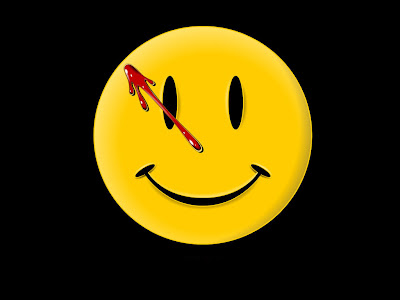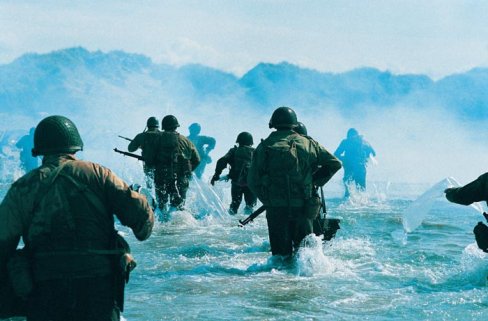This article came across the Washington Post earlier today that I found facinating:
U.S. Finds It's Getting Crowded Out There
Dominance in Space Slips as Other Nations Step Up Efforts
By Marc Kaufman
Washington Post Staff Writer
Wednesday, July 9, 2008; A01
China plans to conduct its first spacewalk in October. The European Space Agency is building a roving robot to land on Mars. India recently launched a record 10 satellites into space on a single rocket.
Space, like Earth below, is globalizing. And as it does, America's long-held superiority in exploring, exploiting and commercializing "the final frontier" is slipping away, many experts believe.
Although the United States remains dominant in most space-related fields -- and owns half the military satellites currently orbiting Earth -- experts say the nation's superiority is diminishing, and many other nations are expanding their civilian and commercial space capabilities at a far faster pace.
"We spent many tens of billions of dollars during the Apollo era to purchase a commanding lead in space over all nations on Earth," said NASA Administrator Michael D. Griffin, who said his agency's budget is down by 20 percent in inflation-adjusted terms since 1992.
"We've been living off the fruit of that purchase for 40 years and have not . . . chosen to invest at a level that would preserve that commanding lead."
In a recent in-depth study of international space competitiveness, the technology consulting firm Futron of Bethesda found that the globalizing of space is unfolding more broadly and quickly than most Americans realize. "Systemic and competitive forces threaten U.S. space leadership," company president Joseph Fuller Jr. concluded.
Six separate nations and the European Space Agency are now capable of sending sophisticated satellites and spacecraft into orbit -- and more are on the way. New rockets, satellites and spacecraft are being planned to carry Chinese, Russian, European and Indian astronauts to the moon, to turn Israel into a center for launching minuscule "nanosatellites," and to allow Japan and the Europeans to explore the solar system and beyond with unmanned probes as sophisticated as NASA's.
To some extent, I'm not surprised by this at all. I really think that NASA has essentially lost its purpose as a sort of exploration and science type of organization while focusing extensively on science that, for all intents and purposes, is interesting, but out of touch with the vast part of the American public. Putting an Astronaut on the moon is something that is tangible, but also exciting, it captured the imagination, much as the first space walks and excursions did. Once people became used to the idea that humanity can touch the stars, life returned to normal.
While the United States has been making incremental progress in space, its global rivals have been taking the giant steps that once defined NASA:
· Following China's lead, India has announced ambitious plans for a manned space program, and in November the European Union will probably approve a proposal to collaborate on a manned space effort with Russia. Russia will soon launch rockets from a base in South America under an agreement with the European company Arianespace, whose main launch facility is in Kourou, French Guiana.
· Japan and China both have satellites circling the moon, and India and Russia are also working on lunar orbiters. NASA will launch a lunar reconnaissance mission this year, but many analysts believe the Chinese will be the first to return astronauts to the moon.
· The United States is largely out of the business of launching satellites for other nations, something the Russians, Indians, Chinese and Arianespace do regularly. Their clients include Nigeria, Singapore, Brazil, Israel and others. The 17-nation European Space Agency (ESA) and China are also cooperating on commercial ventures, including a rival to the U.S. space-based Global Positioning System.
· South Korea, Taiwan and Brazil have plans to quickly develop their space programs and possibly become low-cost satellite launchers. South Korea and Brazil are both developing homegrown rocket and satellite-making capacities.
This explosion in international space capabilities is recent, largely taking place since the turn of the century. While the origins of Indian, Chinese, Japanese, Israeli and European space efforts go back several decades, their capability to pull off highly technical feats -- sending humans into orbit, circling Mars and the moon with unmanned spacecraft, landing on an asteroid and visiting a comet -- are all new developments.
I really hope that these recent developments will help push the United States back into a mindset where we need to return to the moon. With the incredible advances in technology, I imagine that it would be somewhat easier and cheaper to return, especially with a lot of the initial groundwork that was laid with the Apollo program already under our belts. I can see the Chinese as huge contenders for the next men to walk on the moon, with the rate at which their nation is developing. I think that it's just a matter of time.
I firmly believe that space travel will be, and should be taken out of the hands of the US government and NASA. Advances in space travel from this point on will likely not be taken by said groups - it'll be firmly in the hands of non-governmental organizations. Incentives such as the X-Prize and the Google X-prize are just the first things to come, in my opinion.
The problem with NASA is not that they don't do a good job - they do, and they have the world's leading space program at the moment - but they are currently being held back by constraints such as Congress and budgets - by people who are too scared to try, and where setbacks such as a shuttle disaster such as Columbia or Challenger seem to indicate to policy makers that the road to space is far too difficult and too dangerous. Interestingly, the 6 MILLION car accidents in 2005 hasn't prompted policy makers to shut down the vast US interstate system.
In contrast to the Cold War space race between the United States and the former Soviet Union, the global competition today is being driven by national pride, newly earned wealth, a growing cadre of highly educated men and women, and the confidence that achievements in space will bring substantial soft power as well as military benefits. The planet-wide eagerness to join the space-faring club is palpable.
China has sent men into space twice in the past five years and plans another manned mission in October. More than any other country besides the United States, experts say, China has decided that space exploration, and its commercial and military purposes, are as important as the seas once were to the British empire and air power was to the United States.
The Chinese space program began in the 1970s, but it was not until 2003 that astronaut Yang Liwei was blasted into space in a Shenzhou 5 spacecraft, making China one of only three nations to send men into space.
"The Chinese have a carefully thought-out human spaceflight program that will take them up to parity with the United States and Russia," Griffin said. "They're investing to make China a strategic world power second to none -- not so much to become a grand military power, but because deals and advantage flow to world leaders."
Meanwhile, other nations are pushing to increase their space budgets. Ministers from the European Space Agency nations will vote in November on a costly plan to begin a human space program. David Southwood, ESA's director for science, said human space travel has broad support across the continent, and European astronauts who have flown to the space station on U.S. and Russian spacecraft are "extremely popular people" in their home nations. "It seems highly unlikely that Europe as a whole will opt out of putting humans into space," he said.
NASA and the U.S. space effort, meanwhile, have been in something of a slump.
The space shuttle is still the most sophisticated space vehicle ever built, and orbiting observatories such as the Hubble space telescope and its in-development successor, the James Webb space telescope, remain unmatched. But the combination of the 2003 Columbia disaster, the upcoming five-year "gap" when NASA will have no American spacecraft that can reach the space station, and the widely held belief that NASA lacks the funding to accomplish its goals, have together made the U.S. effort appear less than robust.
The tone of a recent workshop of space experts brought together by the respected National Research Council was described in a subsequent report as "surprisingly sober, with frequent expressions of discouragement, disappointment, and apprehension about the future of the U.S. civil space program."
Uncertainty over the fate of President Bush's ambitious "vision" of a manned moon-Mars mission, announced with great fanfare in 2004, is emblematic. The program was approved by Congress, but the administration's refusal to significantly increase spending to build a new generation of spacecraft has slowed development while leading to angry complaints that NASA is cannibalizing promising unmanned science missions to pay for the moon-Mars effort.
NASA's Griffin has told worried members of Congress that additional funds could move up the delivery date of the new-generation spacecraft from 2015 to 2013. The White House has rejected Senate efforts to provide the money.
Although NASA's annual funding of $17 billion is large by civilian space agency standards, it constitutes less than 0.6 percent of the federal budget and is believed to be less than half of the amount spent on national security space programs. According to the Futron report, a considerably higher percentage of U.S. space funding goes into military hardware and systems than in any other nation.
At the same time, the enthusiasm for space ventures voiced by Europeans and Asians contrasts with America's lukewarm public response to the moon-Mars mission. In its assessment, Futron listed the most significant U.S. space weakness as "limited public interest in space activity."
The cost of manned space exploration, which requires expensive measures to sustain and protect astronauts in the cold emptiness of space, is a particular target.
"The manned space program served a purpose during the Apollo times, but it just doesn't anymore," says Robert Parks, a University of Maryland physics professor who writes about NASA and space. The reason: "Human beings haven't changed much in 160,000 years," he said, "but robots get better by the day."
Satellite Launches Fall
The study by Futron, which consults for public clients such as NASA and the Defense Department, as well as the private space industry, also reported that the United States is losing its dominance in orbital launches and satellites built. In 2007, 53 American-built satellites were launched -- about 50 percent of the total. In 1998, 121 new U.S. satellites went into orbit.
I foresee US and even global space interests resting in the hands of commercial ventures, with bodies such as the European Space Agency or NASA largely becoming regulatory bodies. The X-Prize has proven that private interests without governmental aid can reach the skies, and I'm sure that the Google X-Prize will prove that we can reach the moon as well. Governmental aid will certainly help this process, but a private industry of satellites and space stations, as well as the means to reach them could be very profitable, not only for the scientific community.
In two areas, the space prowess of the United States still dominates. Its private space industry earned 75 percent of the worldwide corporate space revenue, and the U.S. military has as many satellites as all other nations combined.
But that, too, is changing. Russia has increased its military space spending considerably since the collapse of the Soviet Union. In May, Japan's parliament authorized the use of outer space for defense purposes, signaling increased spending on rockets and spy satellites. And China's military is building a wide range of capabilities in space, a commander of U.S. space forces said last month. Last year, China tested its ground-based anti-satellite technology by destroying an orbiting weather satellite -- a feat that left behind a cloud of dangerous space debris and considerable ill will.
Ironically, efforts to deny space technology to potential enemies have hampered American cooperation with other nations and have limited sales of U.S.-made hardware.
Concerned about Chinese use of space technology for military purposes, Congress ramped up restrictions on rocket and satellite sales, and placed them under the cumbersome International Traffic in Arms Regulations (ITAR). In addition, sales of potentially "dual use" technology have to be approved the State Department rather than the Commerce Department.
The result has been a surge of rocket and satellite production abroad and the creation of foreign-made satellites that use only homegrown components to avoid complex U.S. restrictions under ITAR and the Iran Nonproliferation Act. That law, passed in 2000, tightened a ban on direct or indirect sales of advanced technology to Iran (especially by Russia). As a result, a number of foreign governments are buying European satellites and paying the Chinese, Indian and other space programs to launch them.
"Some of these companies moved ahead in some areas where, I'm sorry to say, we are no longer the world leaders," Griffin said.
Joan Johnson-Freese, a space and national security expert at the Naval War College in Rhode Island, said the United States has been so determined to maintain military space dominance that it is losing ground in commercial space uses and space exploration. "We're giving up our civilian space leadership, which many of us think will have huge strategic implications," she said.
"Other nations are falling over each other to work together in space; they want to share the costs and the risks," she added. "Because of the dual-use issue, we really don't want to globalize."
Article Source













